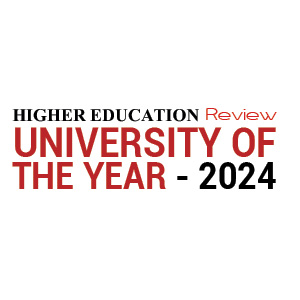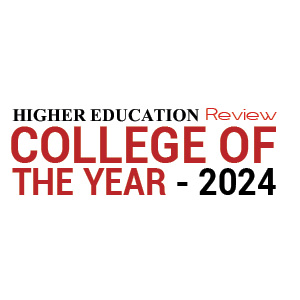Cover Story
University of the Year - 2024
Universities worldwide experienced radical changes in the landscape of education, technology, and society in 2024. The higher education sector was increasingly diverse and dynamic to cope with the challenges faced by a globalized, digital world. Thereby, it marked the phase of flexible, interdisciplinary, and globally oriented systems of education that would be developed to equip students for solving issues of complexity and interconnectedness in many fields.
This integration of technology was perhaps the most dominant trend of 2024, as it went towards the integration of more technologies into university curricula and operations. In that aspect, universities increased the application of digital tools and platforms to enhance learning. Institutions began to reach out to broader and more diverse populations such as non-traditional learners, working professionals, and others from all parts of the world. More and more online courses, degree programs, and virtual classrooms have become very popular, especially in areas of technology, business, and the humanities.
Along with technological innovations, interdisciplinary learning was the growing trend. Universities realized the need to prepare students to solve complex, real-world problems that are often multifaceted and cross many fields of knowledge. Many institutions redesigned their programs to facilitate collaboration between departments, offering courses combining insights from various disciplines like data science, business, environmental studies, and social sciences. This interdisciplinary approach would nurture critical thinking, creativity, and problem-solving skills to produce well-rounded thinkers able to handle the multifaceted problems of the modern world.
Another trend that the universities were witnessing in 2024 is growing emphasis on global collaboration. Universities were looking to expand international networks and provided more opportunity to students for studying abroad, to engage in exchange programs, collaborative research projects with international partners, and other such activities that exposed students to diverse perspectives and prepared them for working in increasingly internationalized industries. Universities also improved their collaborations with global companies, NGOs, and research institutions, ensuring that students were able to engage in practical, real-world experience while addressing global problems such as public health, poverty, and technological development.
To summarize, Universities in the year 2024 went through drastic changes as it was essential to adjust to the needs of the technology advanced, internationalized environment. These schools transformed to be more agile, more cross-domain and transnational with an accent on sustainable development, the interests of learners and inclusiveness growing. Globalization of tertiary education continued its relentless march and universities in many countries were ready to offer diverse students an ideal combination of skills, knowledge and experiences fit for a globalised and all-encompassing world. The transformations occurred in the year 2024 laid the foundation for defining the future of education which was driven by creativity, equity and transnational collaboration.
Higher Education Review magazine in this issue spotlights ‘University of the Year – 2024’ featuring universities who have been in the educational field for almost a century and are offering best class education in the country. The following list has been prepared after being closely scrutinized by a distinguished panel of judges including CXOs, analysts and our editorial board.
University of the Year - 2024
College Logo |
College |
Management |
Description |
|---|---|---|---|

|
Medhavi Skills University
Sikkim
|
Pravesh Dudani, Founder & Chancellor | India |






